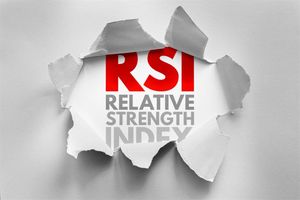Harvey Publishing's 'Rethinking Overthinking' by Simon Harris positions overthinking as a strategic human advantage over AI. Research shows creative rumination boosts output by 43%, while overthinkers excel in ethical judgement, ambiguity, and creative divergence -domains where machines struggle.

-- A 2003 University of Michigan study found that 73% of adults aged 25-35 identify as frequent overthinkers, suggesting the phenomenon is widespread among the demographic most affected by technological disruption. Recent research from Harvard Medical School reveals that what researchers term 'creative rumination' produces measurable increases in brain activity linked to innovation, resulting in a 43% boost in creative output among participants. The findings challenge the longstanding perception that overthinking represents a cognitive weakness, positioning it instead as a scientifically validated asset in an era increasingly dominated by artificial intelligence. As AI systems proliferate across industries and automate routine decision-making, the uniquely human capacity for deep, reflective thought emerges as a critical differentiator, one that machines fundamentally cannot replicate.
AI excels at data crunching and pattern recognition but struggles profoundly with ambiguity, human values, ethical nuance, and emotional meaning - domains where overthinkers naturally thrive. Experts identify four distinct human advantages that remain beyond machine capability: meaning-making, which asks why something matters rather than merely what it is; moral judgement, which weighs values and trade-offs through empathy; ambiguity immunity, the ability to hold questions without demanding immediate answers; and creative divergence, which proposes new frameworks and imagines futures unconstrained by historical data. These capacities align precisely with the reflective processes that characterise overthinking, transforming what many dismiss as mental looping into a strategic advantage for professionals and creatives in an AI-driven landscape.
Statistical evidence underscores how widespread this trait has become. Recent surveys indicate that more than 73% of adults admit to overthinking choices, running mental 'what if' simulations that AI cannot replicate. Rather than framing this prevalence as a problem, emerging research positions it as evidence of a hidden asset: in team creativity tests, the most celebrated and original ideas still originate from humans who harness self-doubt, intuition, and extended periods of what superficially resembles overthinking, outperforming AI-generated alternatives in depth, novelty, and emotional resonance.
Simon Harris's book 'Rethinking Overthinking', published by Harvey Publishing, presents a blueprint that overturns the notion that overthinking is inherently negative. Harris argues that when properly harnessed, overthinking becomes a tool for turning problems into opportunities and negativity into creativity, offering professionals feeling overwhelmed by AI's rise a foundational resource for reclaiming confidence. The book positions overthinking not as a burden to suppress but as a capacity to channel, providing readers with frameworks to convert anxiety-driven rumination into strategic, creative decision-making that complements rather than competes with machine intelligence.
Practical strategies drawn from Harris's work offer concrete methods for channelling overthinking into competitive advantage. Divergent-to-convergent thinking encourages using the overthinker's natural tendency to generate multiple possibilities before converging on wise choices, whilst time-boxing analysis sets decision deadlines to prevent endless loops. Questioning assumptions uses the overthinker's scepticism to ask 'what if the opposite is true?', complementing AI's pattern-based output with human insight, and bridging thought with action combines deep reflection with decisive movement to build confidence. These approaches reflect how high-performing teams and innovators already use overthinking to outpace AI-driven competitors, demonstrating that superior ideas - not merely more ideas -emerge from this distinctively human process.
In the age of AI, confidence no longer stems from knowing more or thinking less; it comes from trusting and owning the uniquely human capacity for reflection, ethical judgement, and creative divergence. For professionals and creatives feeling undervalued as automation advances, this reframing offers reassurance: the overthinking mind is not a weakness but a valuable asset in an uncertain landscape.
Harvey Publishing's mission - inspire · empower · educate - aligns directly with this need, offering resources like 'Rethinking Overthinking' that help readers see their cognitive patterns not as flaws to fix but as strengths to harness. The publication provides a practical guide for converting overthinking from a source of anxiety into a source of creativity and confident decision-making, inviting readers to reclaim their reflective capacities as the advantage machines will never possess.
Contact Info:
Name: Alison Powner
Email: Send Email
Organization: Harvey Publishing Ltd
Address: 128 City Road, London, England EC1V 2NX, United Kingdom
Website: https://harveypublishingltd.com
Source: NewsNetwork
Release ID: 89175992
In case of encountering any inaccuracies, problems, or queries arising from the content shared in this press release that necessitate action, or if you require assistance with a press release takedown, we urge you to notify us at error@releasecontact.com (it is important to note that this email is the authorized channel for such matters, sending multiple emails to multiple addresses does not necessarily help expedite your request). Our responsive team will be readily available to promptly address your concerns within 8 hours, resolving any identified issues diligently or guiding you through the necessary steps for removal. The provision of accurate and dependable information is our primary focus.




